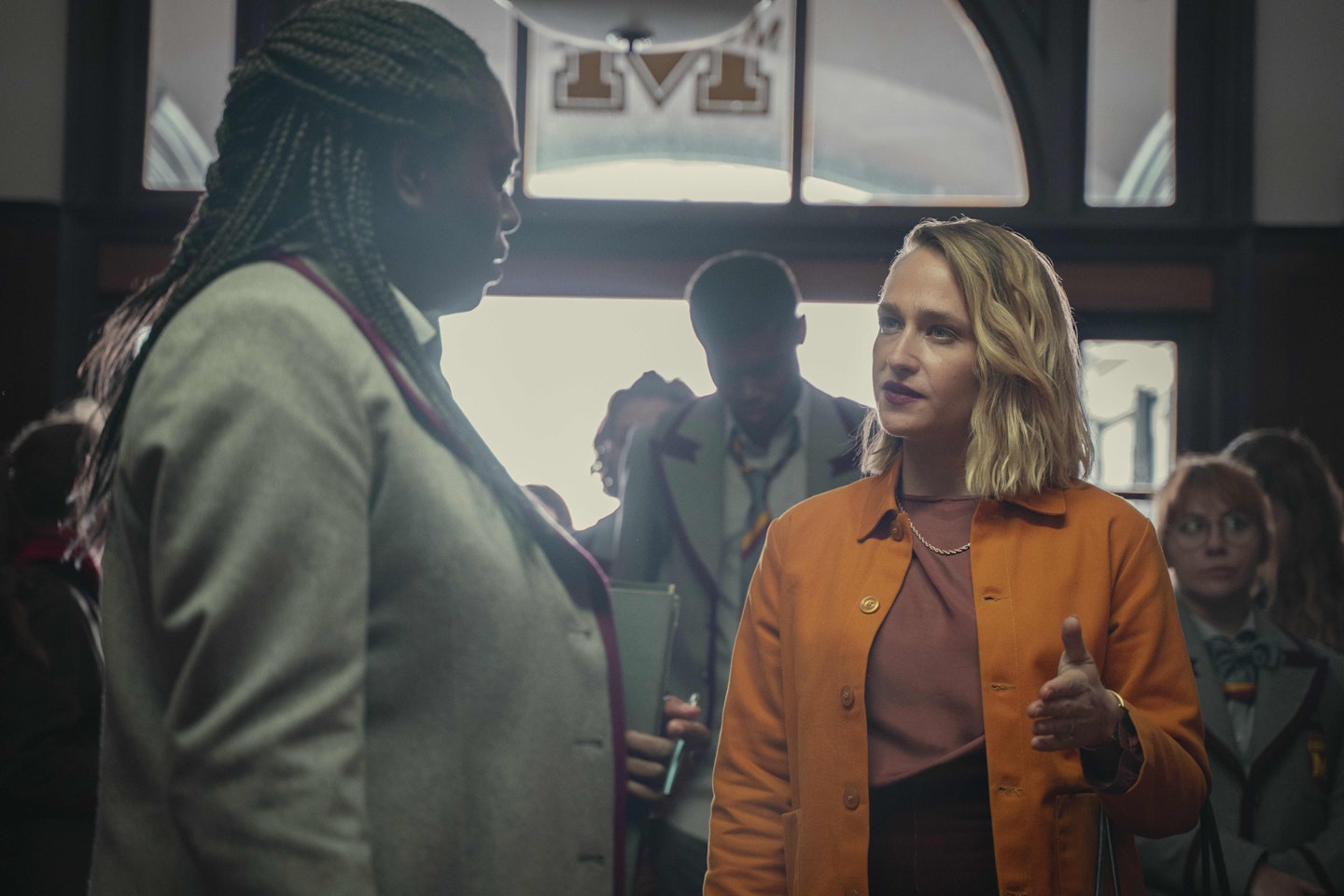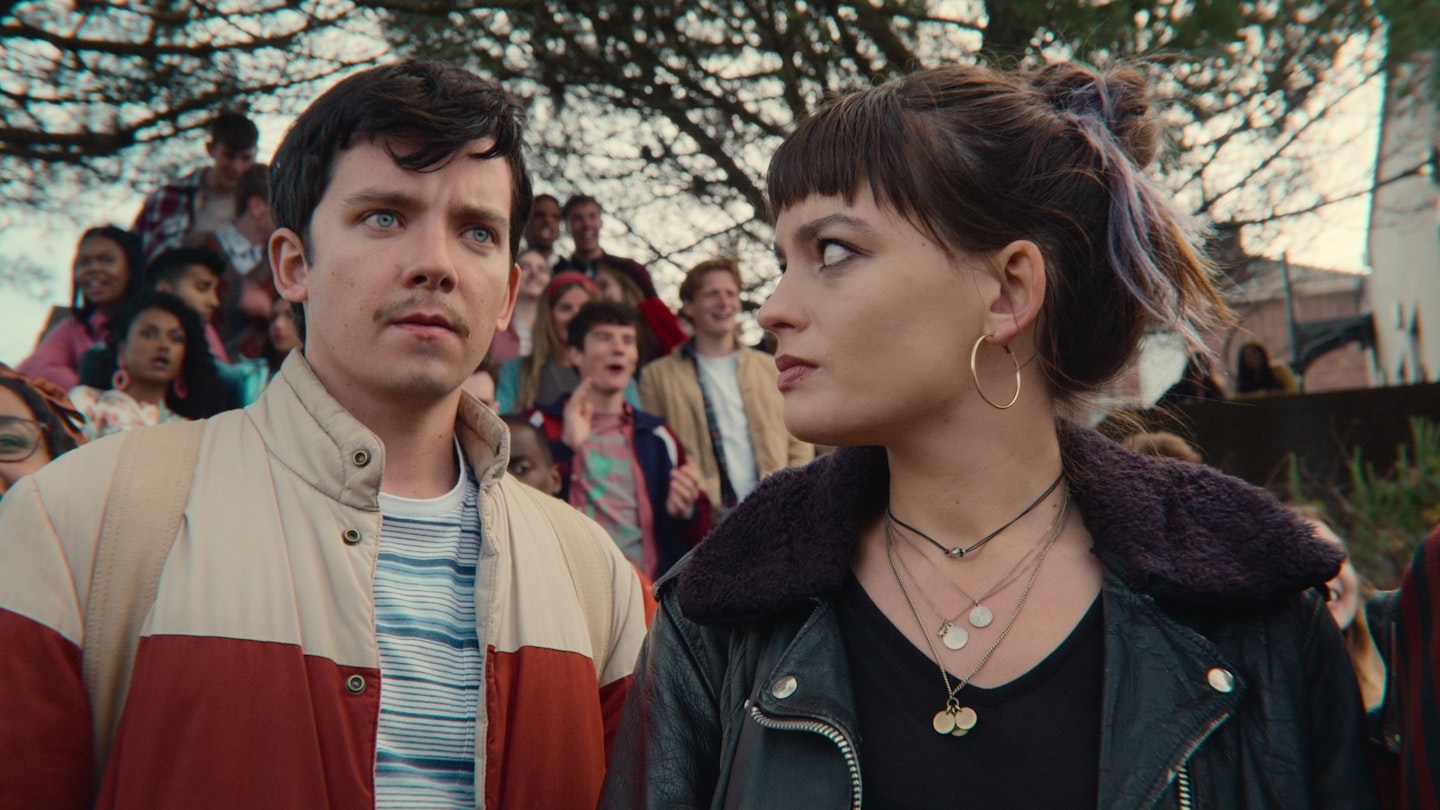Streaming on: Netflix
Episodes viewed: 8 of 8
A montage of grappling, grunting teenagers kicks off the Season 3 opener of Sex Education on a high. It starts with a car at night, its windows foggy, its framework rocking unceremoniously while the couple inside engage in an energetic, carnal act of passion. What ensues can only be described as a sexual symphony, scored by Tommy James & The Shondells’ original version of ‘I Think We’re Alone Now’, and balancing tongue-in-cheek humour with a giddy sense of empowerment.
Sex Education began boldly in 2019, with its candid study of sex amongst modern teens tinged with comedy, and upheld a kitsch aesthetic, all ’70s interiors and slick camerawork. At its core was the central relationship between fresh-faced virgin Otis (Asa Butterfield) and his sex therapist mum Jean (Gillian Anderson, continuing her mid-career high), and their combined mission to reduce the stigma around sex. There was a storyline for everything, from douching to alien fetishes, each feeling less like an after-school special and more like a moving, gently funny vignette. Now in its third phase, the show’s creators have kept the fundamentals of Sex Education, but prioritised amplifying the central performances from its plucky and versatile cast.

Each has their own hand to play, and plays it exceptionally well. Otis’ best friend Eric (played with verve and open vulnerability by Ncuti Gatwa) is in a complex new relationship with his freshly outed former bully Adam (Connor Swindells). Aimee (Aimee Lou Wood) is struggling to accept her body after being sexually assaulted in the previous series, a plotline that moved the show into more memorable and emotionally rich storytelling. No one character is reduced to their traits, and each performer in turn explores the far corners of their robust on-screen personas.
The show has also striven to improve representation. Secondary characters have been promoted, notably George Robinson’s Isaac, a wheelchair-user who carries an especially tender sex scene. Non-binary musician-actor Dua Saleh also joins the cast, with their arc offering valuable insight into gender discrimination as they come up against new headteacher Hope’s (Jemima Kirke) conservative rules.
What keeps the show refreshing is its constant mission of self-improvement.
It’s Hope’s reign that keeps the plot moving in series three, while the ensemble of characters fall in and out of love and lust with each other, but simultaneously this series makes a conscious effort to move further away from its high-school setting. This may be a tactical move to keep the show around for longer — there are only so many years in high school — but the expanded world works in favour of character development. However, these additional storylines occasionally overstuff episodes, and the show struggles to keep all its plates spinning at the same level; a few narrative arcs don’t receive equal attention or get tied up so neatly.
What keeps the show refreshing is its constant mission of self-improvement. It continuously seeks out subjects and identities that have been marginalised or stigmatised, and finds new ways to work them into a comedy framework without sacrificing heart and integrity. This is as intelligently written and empathetic as a teen show can get.
